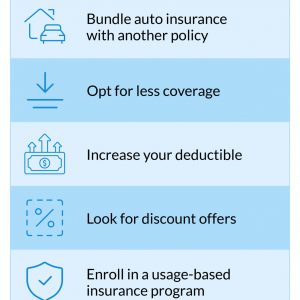“Stay ahead of the curve with the latest tax law changes for small businesses!”
Introduction
Small businesses are the backbone of the economy, and they are often the first to feel the effects of changes in tax law. As the government continues to make changes to the tax code, it is important for small business owners to stay informed and up-to-date on the latest developments. This article will provide an overview of recent tax law changes that may affect small businesses, as well as tips on how to stay compliant with the new regulations.
How the New Tax Law Impacts Small Businesses
The Tax Cuts and Jobs Act of 2017 (TCJA) is the most sweeping tax reform legislation in decades. It has far-reaching implications for small businesses, including changes to deductions, credits, and other tax incentives.
For starters, the TCJA nearly doubles the standard deduction for individuals and married couples filing jointly. This means that many small business owners may no longer need to itemize deductions, which could reduce their tax burden.
The TCJA also reduces the corporate tax rate from 35% to 21%. This could be a major boon for small businesses that are organized as C-corporations.
The TCJA also eliminates the corporate alternative minimum tax (AMT). This could be a major benefit for small businesses that are organized as C-corporations, as the AMT could have resulted in higher taxes.
The TCJA also increases the Section 179 deduction, which allows businesses to deduct the cost of certain business assets in the year they are purchased. This could be a major benefit for small businesses that are looking to invest in new equipment or technology.
The TCJA also expands the availability of the Qualified Business Income (QBI) deduction. This deduction allows small business owners to deduct up to 20% of their qualified business income.
Finally, the TCJA eliminates the individual mandate penalty for not having health insurance. This could be a major benefit for small business owners who are self-employed and do not have access to employer-sponsored health insurance.
Overall, the TCJA has far-reaching implications for small businesses. While some of the changes may result in lower taxes, others may require small business owners to adjust their strategies in order to take full advantage of the new tax law.
Exploring the Benefits of the New Tax Law for Small Businesses
The Tax Cuts and Jobs Act of 2017 has been a major boon for small businesses across the United States. This new law has provided a number of benefits that can help small businesses save money and increase their profitability. Here, we will explore some of the key benefits of the new tax law for small businesses.
One of the most significant benefits of the new tax law is the reduction of the corporate tax rate from 35% to 21%. This reduction in the corporate tax rate can help small businesses save a significant amount of money on their taxes. Additionally, the new law allows small businesses to deduct 20% of their qualified business income from their taxable income. This deduction can help small businesses reduce their taxable income and save money on their taxes.
The new tax law also provides a number of other benefits for small businesses. For example, the law allows small businesses to deduct the cost of certain business expenses, such as equipment and supplies, from their taxable income. This deduction can help small businesses save money on their taxes and reinvest in their business. Additionally, the new law allows small businesses to deduct the cost of certain employee benefits, such as health insurance, from their taxable income. This deduction can help small businesses save money on their taxes and provide better benefits for their employees.
Finally, the new tax law provides a number of incentives for small businesses to invest in their business. For example, the law allows small businesses to deduct the cost of certain investments, such as research and development, from their taxable income. This deduction can help small businesses save money on their taxes and reinvest in their business. Additionally, the new law allows small businesses to defer the payment of certain taxes, such as capital gains taxes, until a later date. This deferral can help small businesses save money on their taxes and reinvest in their business.
Overall, the new tax law provides a number of benefits for small businesses. These benefits can help small businesses save money on their taxes and reinvest in their business. By taking advantage of these benefits, small businesses can increase their profitability and better compete in the marketplace.
Understanding the Impact of the New Tax Law on Small Businesses
The Tax Cuts and Jobs Act of 2017 (TCJA) has had a significant impact on small businesses across the United States. This new tax law has changed the way small businesses are taxed, and it is important for business owners to understand how these changes will affect their operations.
The most significant change for small businesses is the reduction in the corporate tax rate. The TCJA has reduced the corporate tax rate from 35% to 21%, which is a significant decrease. This reduction in the corporate tax rate will result in a decrease in the amount of taxes that small businesses must pay.
In addition to the reduction in the corporate tax rate, the TCJA has also changed the way small businesses can deduct certain expenses. The new law has increased the amount of money that small businesses can deduct for certain expenses, such as business meals and entertainment. This change will allow small businesses to deduct more of their expenses, which will result in a decrease in their taxable income.
The TCJA has also changed the way small businesses can deduct certain capital expenses. The new law has increased the amount of money that small businesses can deduct for certain capital expenses, such as equipment and property. This change will allow small businesses to deduct more of their capital expenses, which will result in a decrease in their taxable income.
Finally, the TCJA has changed the way small businesses can deduct certain pass-through income. The new law has increased the amount of money that small businesses can deduct for certain pass-through income, such as income from partnerships and S corporations. This change will allow small businesses to deduct more of their pass-through income, which will result in a decrease in their taxable income.
Overall, the TCJA has had a significant impact on small businesses across the United States. The reduction in the corporate tax rate, the increased deductions for certain expenses, and the increased deductions for certain pass-through income will all result in a decrease in the amount of taxes that small businesses must pay. It is important for business owners to understand how these changes will affect their operations so that they can take advantage of the new tax law.
Navigating the Changes to Tax Law for Small Businesses
The recent changes to tax law have created a great deal of confusion for small business owners. With the new regulations, it is important to understand the implications of the changes and how they will affect your business.
The most significant change to the tax law is the reduction of the corporate tax rate from 35% to 21%. This change will have a significant impact on the amount of taxes that small businesses will pay. Additionally, the new law allows for a 20% deduction on qualified business income for pass-through entities, such as sole proprietorships, partnerships, and S corporations. This deduction is available to businesses with taxable income of up to $157,500 for single filers and $315,000 for joint filers.
The new law also includes changes to the depreciation rules for businesses. The new law allows for an immediate expensing of certain business assets, such as equipment and furniture, up to $1 million. This change will allow businesses to deduct the cost of these assets in the year they are purchased, rather than having to spread the deduction out over several years.
The new law also includes changes to the deductibility of certain business expenses. For example, the new law eliminates the deduction for entertainment expenses, such as meals and entertainment. Additionally, the new law limits the deductibility of certain business meals to 50%.
Finally, the new law includes changes to the taxation of foreign income. The new law requires businesses to pay a one-time transition tax on certain foreign earnings that have been previously deferred. Additionally, the new law requires businesses to pay a 20% tax on certain foreign-sourced income.
Navigating the changes to the tax law can be a daunting task for small business owners. It is important to understand the implications of the changes and how they will affect your business. Consulting with a qualified tax professional can help you understand the changes and ensure that you are in compliance with the new regulations.
Conclusion
In conclusion, tax law changes for small businesses can be complex and difficult to understand. However, with the right guidance and resources, small business owners can stay up to date on the latest tax law changes and ensure they are compliant with the law. By taking the time to understand the changes and how they affect their business, small business owners can ensure they are taking advantage of all the available tax benefits and deductions.





